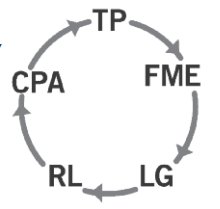Bourgeois Dignity and Human Dignity

|
Title | Bourgeois Dignity: Why Economics Can’t Explain the Modern World |
| Author | Deirdre N. McCloskey | |
| Reviewer | Nicholas Capaldi | |
| Review Date | June 8th, 2012 | |
| Publisher | Chicago: University of Chicago Press | |
| Year | 2010 | |
| Rate this Book |

|
Title | Human Dignity |
| Author | George Kateb | |
| Reviewer | Nicholas Capaldi | |
| Review Date | June 8th, 2012 | |
| Publisher | Belknap Press of Harvard University Press | |
| Year | 2011 | |
| Rate this Book |
In 2010, Deirdre McCloskey published Bourgeois Dignity, remarkable for her erudite repudiation of all previous theories about how we arrived at the modern commercial world. McCloskey developed the thesis that modernity rejected hierarchy, the assignment to some people of more dignity (and privilege) than others, and that this recognition of the dignity of the bourgeois (what I would call a culture of personal autonomy) has led not only to the spectacular economic prosperity we see around us but that it liberated people, and that liberation is reflected in an expanding conception of human dignity. It’s a great book.
In 2011, George Kateb published a book entitled Human Dignity, which is also remarkable in several respects, but takes its departure from a wholly different narrative of political economy. First, the difference in title from McCloskey’s book is significant because Kateb is both appealing to a more generic conception of humanity instead of a particular historical version, and because he is appealing to a larger collective whole. As we shall see, this will have important implications for his conclusions. Second, despite his vast erudition, Kateb manages to avoid mentioning or citing any economist except Marx. Third, Kateb’s book reflects every flaw that McCloskey warns us about with regard to why so many intellectuals despise modern commercial cultures.
Rather than merely counterpointing Kateb against McCloskey, I shall briefly summarize my own account and defense of modern commercial societies, which is compatible with McCloskey’s, and then describe Kateb’s opposition to it.
Social, economic, and political development in the post-Renaissance world has largely evolved along a trajectory which we may deem the Lockean/Liberty Narrative. This narrative traces historical and philosophical development from the Technological Project (TP) of the Enlightenment through the development of Free Market Economics (FME), Limited Government (LG), and Rule of Law (RL) and the emergence of a Culture of Personal Autonomy (CPA), all of which together amplify and modify the Technological Project. This trajectory is not linear but forms a positive feedback loop:
It will help to further describe the key components of this development.
The Technological Project (TP)
The Lockean Liberty narrative perceives that a major philosophical transition has occurred from a world in which nature (understood as having a kind of biological teleology) was considered dominant and the role of human beings was to conform to that nature, to a world in which human beings were considered to have the power to transform nature to human needs (viz. Bacon, Descartes, Locke). This effort to master nature and harness it to human betterment is the Technological Project.
Free Market Economics (FME)
Economics emerges as a key discipline in the early modern era because (a) the Technological Project offers the prospect of unlimited growth, (b) free market economies turn out to be the most effective way of carrying out the Technological Project (viz. Adam Smith), and (c) because economics moves out of the household and becomes a matter of national policy (viz. The Wealth of Nations).
Limited Government (LG)
The free market turned out to flourish best in a political context of limited government. Limited Government (LG) means (a) that governments do not plan or run economies because this violates the freedom of the market, (b) that governments serve the market by providing the conditions that maximize the freedom of the markets (protect property rights and provide for contractual dispute resolution), and (c) that governments are limited in order to maximize individual freedom and creativity. Limited Government is best exemplified in a Republic with a constitution, not in a democracy (see e.g., James Madison in Federalist #10). Ultimately, the only way to limit government is through the Rule of Law.
Rule of Law (RL)
Rule of Law is exemplified in a legal system (a) that establishes the rules of the game without determining the outcome, maximizing both market and personal freedom (viz. Hayek), (b) that is not subject to political whim or wind, and (c) presupposes a political system which is a civil association (viz. Oakeshott), that is, has no purpose other than to serve the purposes of the individuals who compose it.
Culture of Personal Autonomy (CPA)
These economic, political, and legal institutions are not self-sustaining but require a particular kind of culture. All of the foregoing requires a culture that promotes personal autonomy (as articulated by Kant, Hegel, Mill, etc.). The Technological Project in turn becomes an expression of personal freedom and responsibility, and thereby closes the circle. The modern commercial republic transforms the Technological Project from a mere instrumental concern with human comfort, convenience and mastery over nature and instantiates a new substantive conception of individual human freedom and dignity. This is the spiritual quest of modernity, informed by Christian history but finding its apotheosis in the Kantian vision of perpetual peace that is achieved when all nations become commercial republics.
Since the days of the Enlightenment, however, there has been a counternarrative of modern historical development which we may call the Rousseau-Marx Equality Narrative. In this narrative, the modern commercial republic does not eventuate in perpetual peace but perpetual class warfare. Here, the Technological Project and its concomitant industrial development is bad, not only because it despoils nature but because it leads to all modern ills, foremost of which is a growing income gap between rich and poor and thus a growing social inequality. Marx would ultimately amend Rousseau’s pessimism, admitting the benefits of technology and industry and finding the source of modern ills in the political organization of the commercial republic (especially in Free Market Economics and Rule of Law), but the anti-industrial aspect of Rousseau’s thought survives in the form of modern environmental extremism.
In the Equality Narrative, free markets eventually fail and require frequent government intervention, if not control; limited government is always seen as favoring special interests and needs to be replaced by a kind of democratic egalitarianism that points in the direction of a collective general will; law must ultimately serve an egalitarian political agenda; and the autonomous individual is rejected in favor of a view in which persons are once again to be shaped, but now in conformity to the general will as a stand-in for nature.
Modern political discourse has largely taken shape around these two competing narratives of political economy. While it is clear what public policies are most compatible with the Lockean Liberty Narrative, it is not at all clear what positive vision, if any, animates the Rousseauean Equality Narrative. Other than the moral critique subordinating freedom to nature expressed as general will, proponents of the Rousseau narrative disagree on exactly how to transform the present political system and what the precise structure of the alternative society will look like. What identifies someone as an adherent of the Rousseauean Equality Narrative are (a) expressions of being in an adversarial relation (of varying degrees) to whatever they take the present system to be, (b) a moral critique of modern freedom, and (c) the advocacy of social, political, and/or economic restructuring. In most cases, however, proponents of egalitarian society fail to provide an explicit and substantive account of how such a society will function. They are voices of grievance (and hope) without an explicit plan.
With these two narratives in mind, we can now ask where Kateb fits into all of this. I think it is fair to say that Kateb despises modern commercial societies but does not want to surrender the privileges and perks of an endowed professorship at Princeton. To that end, he embraces the Rousseau narrative up to the point that it threatens his private preserve. Kateb lauds Rousseau for articulating “one of the greatest philosophical anthropologies” (135); but is not willing to pursue Rousseau’s logic all the way.
Kateb rejects the Technological Project in favor of an environmentalist conception of nature. He begins by establishing the new general will, in which the grand collective end is “the human species in relation to other species and to nature as a whole” (ix). On Oakeshott’s terms, this turns political society from a civil association which establishes a sphere for citizens to pursue a diversity of ends to an enterprise association in which citizens are expected to align their ends with overriding collective ends. In Kateb’s scheme, this social transformation entails two obligations: first, “to become even more devotedly the steward of nature” and, second, “[a]tonement for what human beings have done to it” (x).
What exactly have we done to nature in Kateb’s view? Specifically, we have “exploited nature for human purposes and hence to ravage nature and ultimately make the earth uninhabitable for many species including humanity” (4). The need to atone means that we must “save endangered animal and plant species from extinction, when possible” (116). At some deep level Kateb sees our wonder of nature as sacred. He is sympathetic to Heidegger’s conception of a “stewardship of nature” (114). Kateb stops short, however, of making nature into the general will. Nature does not have a teleology, nor is the human species as a whole a collective agent (126). It is confusing as to where this leaves us with regard to public policy, with issues, for example, such as the size of the human population. Kateb recognizes that no policy implications follow from the worship of nature.
From these first premises, Kateb’s rejection of the free market economy is unsurprising. He is pessimistic about capitalism; not merely as an economic system but at the deepest psychological levels, finding that the affinity for capitalism emerges from “the foreign policy elite and the mentality of those who lead large business firms or aspire to do so.” Kateb indulges in a psychological characterization of the capitalist personality:
The collective self of the imperialist elite begins in ambition . . . it appears pathologically insatiable for as much control as possible of the affairs of the world, while the capitalist self dispersed among many firms appears pathologically insatiable for profits . . . . the endless pursuit of power or wealth eventually becomes . . . . a game with its own rules and logic that require that it be played without regard to the effects on people who endure the consequences . . . . the game, felt as a special kind of exalted game, runs on the motive of wanting to win or not wanting to lose; and no inwardly generated constraint can set a limit on such a motive . . . (193).
Kateb rejects limited government “because in an oligarchic or capitalist system the rich and their allies are so dominant as to make such rights as free speech…into weapons useful to fortify the oppression of the subordinate classes” (2). He does not advocate absolute natural rights grounded in either religion or metaphysics, but he does advocate human rights that turn out to be morally instrumental. “[T]he right of life can be the basis to circumscribe the rights of property, so as to help many stay alive and in conditions that are not miserable…”(52).
Kateb’s position has expansive policy implications that lack a definite limiting standard in either law or nature. He can assert that the use of the atomic bomb on Japan was reprehensible, that the use of water boarding is a form of torture, and that torture is never permissible even to prevent a greater evil (185-86). On the other hand, he can concede that “undertaking a sustained international policy of costly amelioration is not morally compulsory” (184). Kateb seems aware of the threats of democracy and carrying egalitarianism too far, but he offers no standard to judge what constitutes “too far.” Kateb is against almost all wars, but he does not specify when they are justified. Kateb does endorse a notion of the rule of law (left undefined) exemplified in responsible judicial power. But, on the other hand, he offers no clear limiting device on the exercise of either responsibility or power; he praises former Justice William Brennan for rejecting capital punishment for reasons that reflect not legal precedent but the larger metaphysical/moral agenda about human dignity. On the third hand, Kateb remains ambivalent about abortion.
This brings us finally to the subject of Kateb’s book, human dignity. Kateb endorses individual dignity as long as it is consistent with the survival of species and the preservation of nature. Philosophically, to his credit, he rejects scientistic reductive accounts of humanity and he even recognizes that in some sense we have free will, and therefore part of us is non-material. Moreover, he is against “paternalistically assisted self-development” (111). On the other hand, he thinks it is wrong to “blame many of the poor for their own condition by either condemning their vices or their adherence to stupid beliefs…” (57). Kateb thinks that bringing such moral judgment to bear on the poor (as opposed to the interrogator of terrorists perhaps?), is a way that we rationalize our refusal to help or help enough.
Here, of course, we come to a question that might inform our philanthropic judgment, and we should ask whether Kateb offers us any help in our philanthropic endeavors. In the final analysis, unfortunately, there is little that helps us better understand how to amplify the dignity of individual human persons. Clearly, Kateb has no sympathy for the notion of bourgeois dignity or for modern commercial societies that have generated the vast wealth that has not only dramatically raised the standard of living in modern societies but that also fuels modern philanthropy. Kateb knows what he is against, but in my opinion he has created a caricature of modern commerce and the capitalist mentality. Kateb wants all of the privileges of free societies but without the economic freedom. He is not an apologist for a political ideology; he does not appeal to any cultural tradition; he does not appeal to any religious frame of reference. His final appeal is to a metaphysical conception of nature, and the appeal seems to serve the purpose of dampening the enthusiasm for the Technological Project and markets. There is no content-rich positive alternative vision, only a stick with which to beat the world of bourgeois dignity. The reader who wishes to understand how the modern world became so prosperous and how this prosperity has elevated our discourse about human dignity would be better advised to turn to the work of Deirdre McCloskey.
NICHOLAS CAPALDI is the Legendre-Soulé Distinguished Chair in Business Ethics & Director of the National Center for Business Ethics at Loyola University, and a contributing editor to Conversations on Philanthropy.



